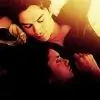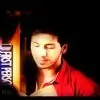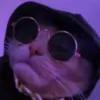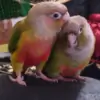Freemasonry is a fraternal organisation that traces its origins to the local fraternities of stonemasons, which from the end of the fourteenth century regulated the qualifications of stonemasons and their interaction with authorities and clients. Masons are members of the organization. The degrees of freemasonry, its gradal system, retain the three grades of medieval craft guilds, those of Apprentice, journeyman or fellow (now called Fellowcraft), and Master Mason. These are the degrees offered by craft, or blue lodge Freemasonry. There are additional degrees, which vary with locality and jurisdiction, and are now administered by different bodies than the craft degrees.
The basic, local organisational unit of Freemasonry is the lodge. The lodges are usually supervised and governed at the regional level (usually coterminous with either a state, province, or national border) by a Grand Lodge or Grand Orient. There is no international, world-wide Grand Lodge that supervises all of Freemasonry. Each Grand Lodge is independent, and they do not necessarily recognise each other as being legitimate.
Candidates for Freemasonry are progressively initiated into Freemasonry, first in the degree of Entered Apprentice. Some time later, in a separate ceremony, they will be passed to the degree of Fellowcraft, and finally they will be raised to the degree of Master Mason. In all of these ceremonies, the candidate is entrusted with passwords, signs and grips peculiar to his new rank.
Ritual & Symbols
Freemasonry describes itself as a beautiful system of morality, veiled in allegory and illustrated by symbols. The symbolism is mainly, but not exclusively, drawn from the manual tools of stonemasons - the square and compasses, the level and plumb rule, the trowel, among others. A moral lesson is attached to each of these tools, although the assignment is by no means consistent. The meaning of the symbolism is taught and explored through ritual.
All Freemasons begin their journey in the "craft" by being progressively initiated, passed and raised into the three degrees of craft, or blue lodge Masonry. During these three rituals, the candidate is progressively taught the meanings of the lodge symbols, and entrusted with grips, signs and words to signify to other Masons that he has been so initiated.
The idea of Masonic brotherhood probably descends from a 16th-century legal definition of a brother as one who has taken an oath of mutual support to another. Accordingly, Masons swear at each degree to keep the contents of that degree secret, and to support and protect their brethren unless they have broken the law.In most lodges the oath or obligation is taken on a Volume of Sacred Law, whichever book of divine revelation is appropriate to the religious beliefs of the individual brother (usually the Bible in the Anglo-American tradition). In Progressive continental Freemasonry, books other than scripture are permissible, a cause of rupture between Grand lodges.
Joining a lodge
Candidates for Freemasonry will have met most active members of the lodge they are joining before they are initiated. The process varies between jurisdictions, but the candidate will typically have been introduced by a friend at a lodge social function, or at some form of open evening in the lodge. In modern times, interested people often track down a local lodge through the Internet. The onus is on candidates to ask to join; while candidates may be encouraged to ask, they are never invited. Once the initial inquiry is made, an interview usually follows to determine the candidate's suitability. If the candidate decides to proceed from here, the lodge ballots on the application before he (or she, depending on the Masonic Jurisdiction) can be accepted.
The absolute minimum requirement of any body of Freemasons is that the candidate must be free, and considered to be of good character. There is usually an age requirement, varying greatly between Grand Lodges, and (in some jurisdictions) capable of being overridden by a dispensation from the Grand Lodge. The underlying assumption is that the candidate should be a mature adult.Candidates for Freemasonry will have met most active members of the lodge they are joining before they are initiated. The process varies between jurisdictions, but the candidate will typically have been introduced by a friend at a lodge social function, or at some form of open evening in the lodge. In modern times, interested people often track down a local lodge through the Internet. The onus is on candidates to ask to join; while candidates may be encouraged to ask, they are never invited. Once the initial inquiry is made, an interview usually follows to determine the candidate's suitability. If the candidate decides to proceed from here, the lodge ballots on the application before he (or she, depending on the Masonic Jurisdiction) can be accepted.
During the ceremony of initiation, the candidate is expected to swear (usually on a volume of sacred text appropriate to his personal religious faith) to fulfil certain obligations as a Mason. In the course of three degrees, new masons will promise to keep the secrets of their degree from lower degrees and outsiders, and to support a fellow Mason in distress (as far as practicality and the law permit). There is instruction as to the duties of a Freemason, but on the whole, Freemasons are left to explore the craft in the manner they find most satisfying. Some will further explore the ritual and symbolism of the craft, others will focus their involvement on the social side of the lodge, while still others will concentrate on the charitable functions of the lodge.
The main principles of freemasonry insist that each member show tolerance, respect and kindness in his actions toward others; practices charity and care for the community as a whole; and strives to achieve high moral standards in his own personal life.Honor and integrity are at the core of the Masonic belief system.Members are obligated to practice self control and treat the people around them with respect, regardless of their own personal opinion of that person.Masons can be a very secretive lot, however much of the "secret" information has been publicized. The Lodge buildings are clearly marked on the outside, address and phone numbers listed in the phone book. Their website probably even includes an "Upcoming Events" page. Meetings are held at the Lodge, where Lodge business
and upcoming activities are discussed. They also use the Lodge buildings to train the younger members.
The Lodge building is often used to hold fundraising and public relation events that are open to non-members and invited guests, like fish fries, pot luck, breakfast, etc.
Freemasons do a lot of work for charities, including holding and participating in various fund raisers withinthe community to promote charitable causes.
The Freemasonry has often faced oppositions from various political groups and religious groups.The misconception that they are evil, resort to misuse of power has come up because of the secretive nature of the organisation.
Common symbol of freemasons

The Square and Compasses is one of the most prominent symbols of Freemasonry. The "G" in the middle represents God, otherwise known inside Lodges as "The Grand Geometrician of the Universe", since Freemasonry demands belief in no specific faith, simply a belief in a "Supreme Being". It has also been ascribed to the Worshipful Master's word. Some also claim that it represents Gnosticism or Saint Germain. The symbol of the Square and Compasses is a trademark and has been registered in some jurisdictions. This image was created for the Grand Lodge of British Columbia and Yukon in 1993.
List of members of Freemasons
George Washington
Benjamin Franklin
Franklin D Roosevelt
Oscar Wilde
John Wayne
Theodore Roosevelt
Mel Blanc
Voltaire
Henry Ford
James Monroe
Mark Twain
Nat King Cole
Rudyard Kipling
Peter Sellers
Louis Armstrong
Bob Feller
Arthur Conan Doyle
Matthew Griffin
Thomas Edison
Isaac Newton
Mozart
Alexander Pope
Rousseau
Garibaldi
Bach
Victor Hugo
Albert Einstein
Sigmund Freud
Karl Marx...etc..
Famous Indian Freemasons
Dr Rajendra Prasad
Dr S Radhakrishnan
Fakhruddin Ali Ahmed
Dorabji Jamshedi Tata
J.R.D Tata
Ramesh Mafatlal
G.L Raheja
Ardaseer Cursetjee Wadia
W C Banerjee
Pandit Motilal Nehru
Dr.Badruddin Tyabji
Dadabhai Naoroji
Sir Rash Behari Ghosh
Sir Phirozeshah Mehta
Justice D P Madon
Justice Prakash Narain
Swami Vivekananda
Parikshit Sahni
Ashok Kumar
C.A. Ramakrishnan...etc.
Hope you all got an over view of what Freemason actually is...if any of you have more information about it please post it in this thread 😳...I am going to sticky this topic, after sometime 😳
Everyone can discuss on this topic over here 😳































